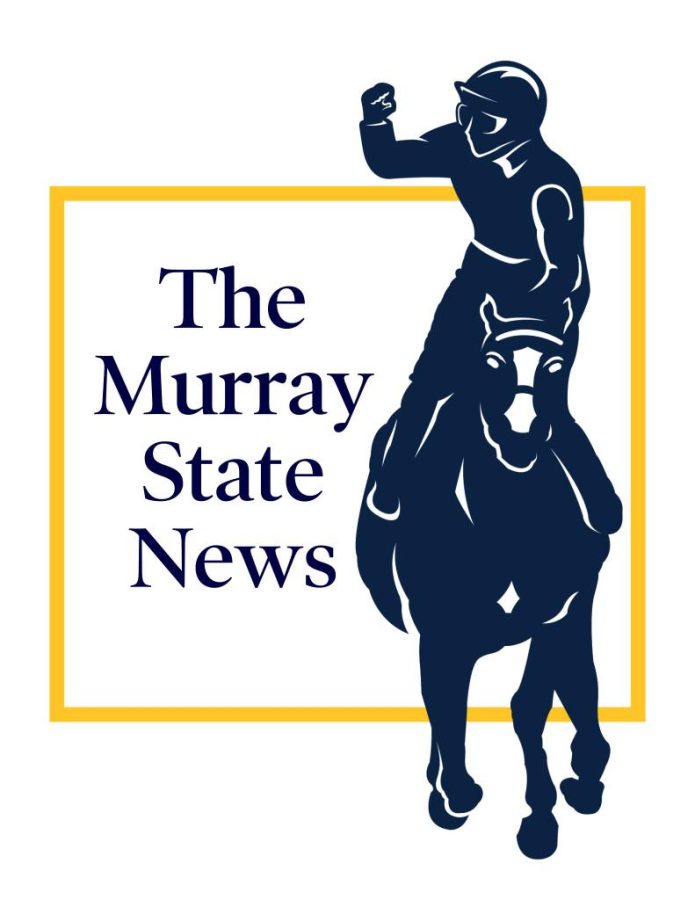Story by Da’sha Tuck, Staff writer
Professors all around campus have different strategies when it comes to approaching political discussions in the classroom. Some approach the topic head-on, and others do all they can to avoid it.
David Pizzo, professor of history, said it is impossible to avoid these discussions, but it is important to be careful not to impose views on the students.
“Politics is everything,” Pizzo said. “I would challenge you to tell me something that isn’t political.”
Approaching Politics In The Classroom
“In order to stimulate growth, students must be exposed to a wide range of thoughts, ideas and concepts,” according to the Murray State Faculty Handbook.
This statement covers a wide range of topics, but political discussions fall into it as well.
Some professors, like Duane Bolin, professor of history, agree that students should be informed, but does not agree that politics have a place in classroom discussions.
“I found myself leaning over backwards to avoid discussing my political views,” said Bolin. “In any classroom, a professor is in a position of power over students, and students might think they need to mirror my views in order to curry favor in class.”
Bolin said he does allow free discussion in his courses as long as the students remain respectful of others’ views and the conversation is productive.
Cindy Barnett, senior lecturer of Spanish, also allows productive discussion in her classroom, but the conversation is often about immigration.
“We don’t specifically talk about political campaigns, but we do discuss immigration because a lot of the candidates have strong opinions about immigration and that can be controversial,” Barnett said.
Winfield Rose, professor of political science, said part of getting an education is confronting that which we find uncomfortable or offensive and realizing that others may have views different from our own.
Implementing Critical Thinking About Politics
There are some professors who take politics further than just a discussion while in the classroom.
Barnett invites guest speakers who have experience with migrant workers and representatives of the immigrant community to her class so they can confront the misconceptions about immigration directly.
She said after these guest speakers, the students write reflection papers on what they have learned and whether the new information has changed their views.
Barnett said she does not wish to influence her students or impose her views on them in any way, but she does want them to have all the facts so they can make their own informed decisions.
Therese Saint Paul, associate professor of French, said she also gives her students assignments in order to think critically about politics.
“I see it as part of my role as a teacher to foster critical thinking through awareness of facts and comparison and analysis, which opens minds to appreciation of the shades of gray in human affairs – avoiding black and white thinking,” Saint Paul said. “As an international faculty from Belgium, I have a perspective that is anchored in facts and experience and it is essential to share that knowledge.”
Barnett said she would like to encourage young people to educate themselves well, to vote in this election and to think very long and hard about how they want to vote.
Predicting The Presidential Outcome
Although Murray State professors have differing opinions on politics, they agree on one thing: that the 2016 election is far from typical.
The consensus was clear when The News asked professors what their opinions were on Republican Candidate Donald Trump because the professors revealed their standings.
There were a few in support, but most were baffled that a man who defies most qualifications of a legitimate presidential candidate is still in the running.
“I think he is a nut, I think he is a complete crackpot,” Barnett said. “I think if Trump wins the presidency we are headed for major trouble. I think it would be devastating to the country.”
Barnett said it is really scary to watch what is happening in this election. She also said she does not think Trump is realistic and she is completely against his views on immigration.
Rose said he can remember every U.S. presidential election going back to 1952 and this is his 48th year teaching as a political science professor.
“Over this span of time, I have seen some progress in certain areas, but I have also seen much more regression and deterioration,” Rose said.
Most professors kept their predictions for November to themselves, but Barnett said she hopes the American people make the right decision.
“History is littered with the debris of societies that have failed and governments that have collapsed,” Rose said. “Ours are not immune to those forces.”




























































































